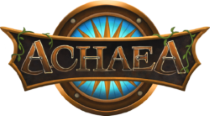Achaea Help Files
Achaea has hundreds of help files to you learn about Achaea. This is a copy of the in-game help file structure. HELP in-game will show you this same menu.
17.2 Games Played Across the Realms
Many games are played outside the arenas of Sapience, generally using the entire Prime Material Plane as a playing area. Bandersnatch Hunt - HELP BANDERSNATCH Capture The Flag (CTF) - HELP CTF Egghunt - HELP EGGHUNT Foozle - HELP FOOZLE Tumblerace - HELP TUMBLERACE XP Event - HELP XPEVENT See these help sections for more details. Information about a Worldgame/Event ----------------------------------- EVENT STATUS will tell you what's going on now, or what's planned. EVENT WHO will tell you who has joined. EVENT SCORES will tell you the current scoring. Joining a Game -------------- Simply JOIN <eventname> or, in some cases, JOIN EVENT. JOIN CTF JOIN TUMBLERACE JOIN XPEVENT JOIN EVENT works the same as, or in place of: - JOIN BANDERSNATCH, - JOIN EGGHUNT, and - JOIN FOOZLE. Arena events have their own special way to join which you will be told when the event begins. See also HELP JOINING. Leaving a Game -------------- LEAVE <Game> or QUIT <game> General information on events / world games ------------------------------------------- World games include egghunt, foozle, and bandersnatch. They share a common system for defining the game in terms of - who can compete (individuals, city vs city, gender vs gender, etc) - game duration - is free pk allowed or not - is major movement allowed or not (portals, pilgrimage, pierce veil, etc) - is sharing of score items allowed or not - is it handicapped or not Handicapping explained ---------------------- World games are often set up for organisational conflict (city vs city, order vs order, house vs. house, etc). These competitions favour the larger organisations. Handicapped events aim to level the playing field between organisations of differing sizes. The method is simple. Think of it as computing an AVERAGE score for all potential competitors involved on a team, instead of a TOTAL score. Or, if you prefer, think of it as computing the total score of all competitors on a team, and then dividing that by how many team members, WHETHER THEY JOINED THE WORLDGAME OR NOT, were in the realms during the course of the game. Thus, a team with 1 competitor, and with only 1 person in realms during the entire worldgame: if that competitor has a score of 100: that team will have an _average_ score of 100 per adventurer. In this rare case, the score for that team would be 100. A team with 2 competitors, and, say, 3 total members in realms (1 of which did not enter the competition): if one scored 170 and the other scored 100, then the combined score would be 270, then divide by the 3 total members in realms for a final _average_ score of 90. In this case, the first team would be victorious in handicapped scoring. The system is a little more detailed than that. What actually happens is that the total number of minutes in realm by each team member, whether joined in the worldgame or not, is added up. Call that "team minutes." Now take the total of all scores on a team, and divide by "team minutes." This gives the final, handicapped score.
